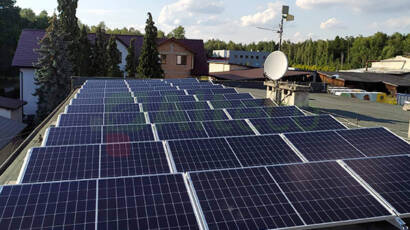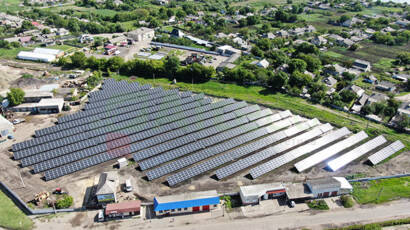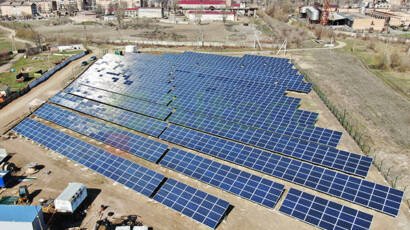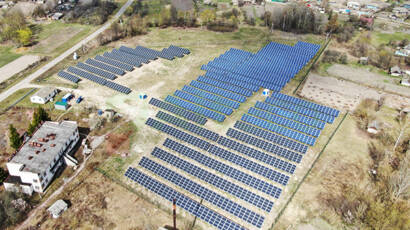
The European Commission has today presented the REPowerEU Plan, its response to the hardships and global energy market disruption caused by Russia’s invasion of Ukraine. There is a double urgency to transform Europe’s energy system: ending the EU’s dependence on Russian fossil fuels, which are used as an economic and political weapon and cost European taxpayers nearly €100 billion per year, and tackling the climate crisis. By acting as a Union, Europe can phase out its dependency on Russian fossil fuels faster. 85% of Europeans believe that the EU should reduce its dependency on Russian gas and oil as soon as possible to support Ukraine. The measures in the REPowerEU Plan can respond to this ambition, through energy savings, diversification of energy supplies, and accelerated roll-out of renewable energy to replace fossil fuels in homes, industry and power generation.
 The green transformation will strengthen economic growth, security, and climate action for Europe. The Recovery and Resilience Facility is at the heart of the REPowerEU Plan, supporting coordinated planning and financing of cross-border and national infrastructure as well as energy projects and reforms. The Commission proposes to make targeted amendments to the Regulation to integrate dedicated REPowerEU chapters in Member States’ existing recovery and resilience plans, in addition to the large number of relevant reforms and investments. The country-specific recommendations in the 2022 European Semester cycle will feed into this process.
The green transformation will strengthen economic growth, security, and climate action for Europe. The Recovery and Resilience Facility is at the heart of the REPowerEU Plan, supporting coordinated planning and financing of cross-border and national infrastructure as well as energy projects and reforms. The Commission proposes to make targeted amendments to the Regulation to integrate dedicated REPowerEU chapters in Member States’ existing recovery and resilience plans, in addition to the large number of relevant reforms and investments. The country-specific recommendations in the 2022 European Semester cycle will feed into this process.
A massive scaling-up and speeding-up of renewable energy in power generation, industry, buildings and transport will accelerate our independence, give a boost to the green transition, and reduce prices over time. The Commission proposes to increase the headline 2030 target for renewables from 40% to 45% under the “Fit for 55” package.
Setting this overall increased ambition will create the framework for other initiatives, including: A dedicated EU Solar Strategy to double solar photovoltaic capacity by 2025 and install 600GW by 2030. A Solar Rooftop Initiative with a phased-in legal obligation to install solar panels on new public and commercial buildings and new residential buildings. Doubling of the rate of deployment of heat pumps, and measures to integrate geothermal and solar thermal energy in modernized district and communal heating systems. A Commission Recommendation to tackle slow and complex permitting for major renewable projects, and a targeted amendment to the Renewable Energy Directive to recognize renewable energy as an overriding public interest. Dedicated ‘go-to’ areas for renewables should be put in place by Member States with shortened and simplified permitting processes in areas with lower environmental risks. To help quickly identify such ‘go-to’ areas, the Commission is making available datasets on environmentally sensitive areas as part of its digital mapping tool for geographic data related to energy, industry and infrastructure. Setting a target of 10 million tons of domestic renewable hydrogen production and 10 million tons of imports by 2030, to replace natural gas, coal and oil in hard-to-decarbonize industries and transport sectors.
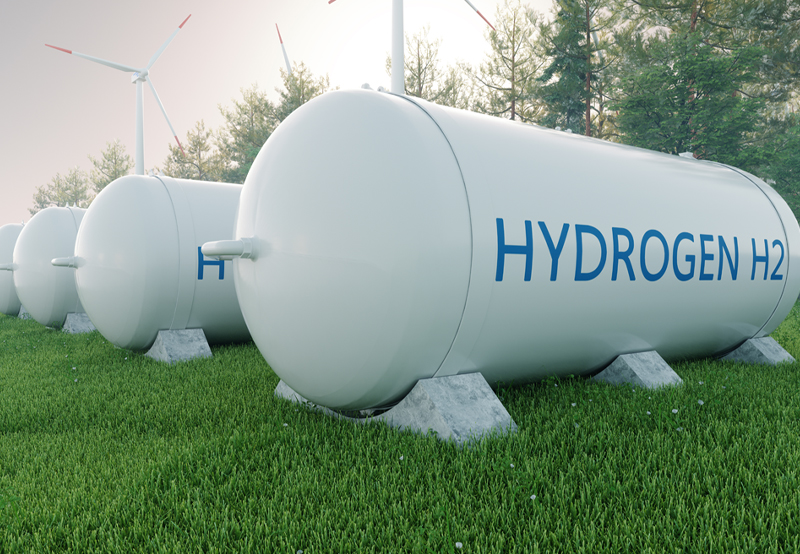 To accelerate the hydrogen market increased sub-targets for specific sectors would need to be agreed by the co-legislators. The Commission is also publishing two Delegated Acts on the definition and production of renewable hydrogen to ensure that production leads to net decarburization. To accelerate hydrogen projects, additional funding of €200 million is set aside for research, and the Commission commits to complete the assessment of the first Important Projects of Common European Interest by the summer. A Biomethane Action Plan sets out tools including a new biomethane industrial partnership and financial incentives to increase production to 35bcm by 2030, including through the Common Agricultural Policy.
To accelerate the hydrogen market increased sub-targets for specific sectors would need to be agreed by the co-legislators. The Commission is also publishing two Delegated Acts on the definition and production of renewable hydrogen to ensure that production leads to net decarburization. To accelerate hydrogen projects, additional funding of €200 million is set aside for research, and the Commission commits to complete the assessment of the first Important Projects of Common European Interest by the summer. A Biomethane Action Plan sets out tools including a new biomethane industrial partnership and financial incentives to increase production to 35bcm by 2030, including through the Common Agricultural Policy.
